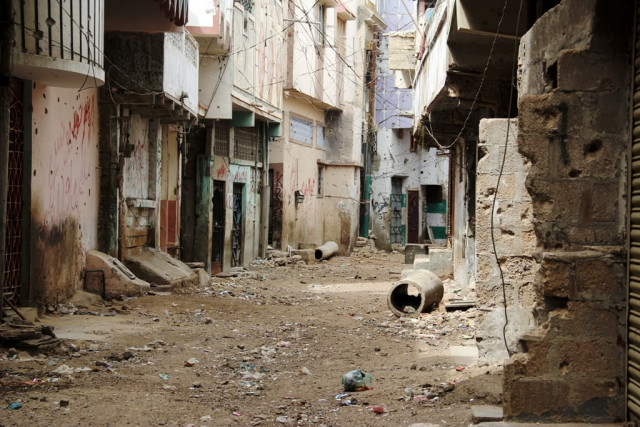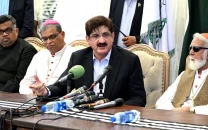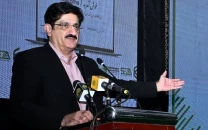Sindh govt launches Lyari transformation project to upgrade infrastructure
Lyari’s infrastructure needs urgent repair, but load-shedding, poverty persist

When people in an area are deprived of access to basic facilities like electricity and are in dire need of a stable livelihood, the government's decision to invest in improving the infrastructural landscape appears little more than a surface solution.
The ruling party in Sindh, the Pakistan People's Party (PPP) is set to launch the Lyari Transformation Projectthis year through the Sindh government. The project is aimed at developing the political stronghold in Lyari and will focus on key infrastructure works such as road construction and replacement of water and sewage lines.
Residents of the area and civil society representatives have welcomed this as a positive development, noting that, like many other parts of Karachi, Lyari's basic infrastructure has collapsed and needs urgent restoration. However, many have emphasized that the most pressing issues plaguing Lyari's residents, including load-shedding and poverty, remain unaddressed.
Abdul Wahab Baloch, a social activist from Lyari, while lauding the Sindh government's concern for Lyari's development, opined that the area's issues were far more complex and widespread. "While fixing roads, water, and sewage systems is important and affects all of Karachi, Lyari's biggest issues remain electricity outages and rising poverty. Load-shedding has been a chronic problem and must be resolved, while youth in the area are in need of employment opportunities," implored Baloch.
Javed Nagori, PPP's President for District South, stated that the Sindh government had taken several steps to provide employment to local youth, including distribution of auto-rickshaws. However, he acknowledged that load-shedding and gas outages remained a serious problem for Lyari's residents.
"I myself live in Lyari and am fully aware of the hardships. Many areas face 14 to 16 hours of power outages daily. The local PPP leadership has made several efforts to resolve the issue but with no success. The problem is twofold: K-Electric complains about electricity theft and unpaid bills, while residents allege overbilling. Both of these issues are beyond the control of PPP," said Nagori.
On the contrary, Saeed Sarbazi, a journalist from Lyari and former President of the Karachi Press Club, believed that the Sindh government could resolve Lyari's electricity issue since the area had been a PPP stronghold since the time of Zulfikar Ali Bhutto.
"The government could establish a fund to pay off residents' outstanding electricity bills since the population is extremely poor and many households owe hundreds of thousands of rupees, which they simply cannot afford to pay. Before implementing development programs, the Sindh government and PPP should consult local elected representatives since they best understand the problems and priorities of their constituencies," noted Sarbazi.
Sarbazi further opined that improving Lyari's sewage system would require replacing the old machinery at existing pumping stations in Chakiwara and Miran Naka. "Two water supply lines provided to Lyari in previous governments are being illegally tapped at various points, preventing water from reaching the intended areas. A permanent solution to this issue must be devised by the Sindh government," said Sarbazi.
Conversely, Lyari Town's Municipal Commissioner, Hammad N.D. Khan revealed that the project will be completed in phases within two to three years. Khan claimed that the Sindh government had allocated Rs5 billion for the project in the current fiscal year. In the first phase, underground utility work will begin in 13 Union Councils of Lyari Town, which includes laying new pipelines for drinking water and sewage systems.
"Additionally, water and sewage pumping stations will be solarized, and stormwater drains in Lyari will be restored. If funds remain after these primary tasks, work will be extended to smaller streets and playgrounds. Once the project's PC-1 is approved, tenders will be issued, and we aim to start work by December," said Khan.
























COMMENTS
Comments are moderated and generally will be posted if they are on-topic and not abusive.
For more information, please see our Comments FAQ